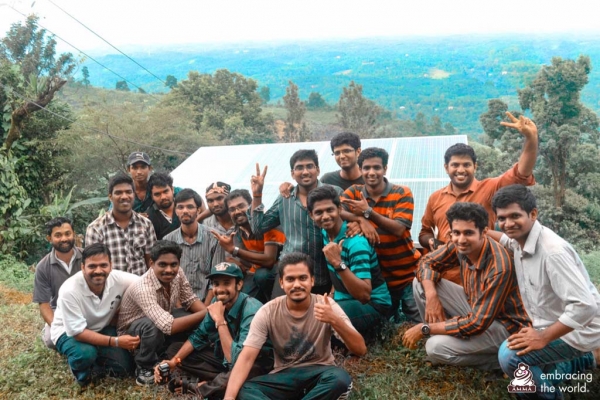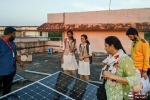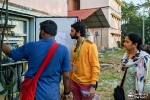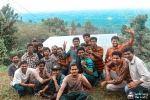Dr Maneesha V Ramesh is the Director of WNA and the UNESCO Chair for Experiential Learning for Sustainable Innovation & Development. She explains, “About one-third of India’s 600,000 villages do not have access to electricity, and villages that do receive power experience constant disruption.
“WNA decided to use its resources to light up rural India using smart grids. We launched ‘AmritaSphuranam’, a project which is the brainchild of Amrita’s Chancellor, Mata Amritanandamayi Devi (Amma). She felt the need for a research project that would benefit rural communities.”
Amrita researchers first worked on a microgrid prototype to solve existing problems of power theft, fault detection, manual billing and other such issues. Next, development of the smart grids began.
In September 2014, a sustainable model for a solar microgrid was inaugurated. With funding from the Mata Amritanandamayi Math, the system was established to light up rural India utilizing self-sustainable microgrids and renewable energy. Amrita adopted Mothakara village in the Wayanad district of Kerala for the project. Mothakara was chosen because it had no access to power, which posed many issues to residents related to health, safety and hygiene.
The village is inhabited by a tribal population of 40 families comprising around 260 people. Amrita achieved complete electrification of Mothakara by installing a solar-power generation unit.
Electrification of the village has paved the way for its socioeconomic development. We are now providing training to the local community in running the grid, which can be remotely monitored and managed from the university’s Amritapuri campus.
In Komalakudi, another tribal settlement in Kerala, WNA implemented a plan to provide electricity to the village from available hydro-resources. The micro-hydro generator, constructed along the perennial water stream, now provides 24/7 electricity to 8 homes, 2 street lights, the multi-grade learning centre, the village’s anganwadi (pre-school), and the youth centre. Amrita has also designed and installed a water distribution system there.
Electrification of Komalikudi has helped improve the difficult socio-economic conditions of the village. For example, more than 50 students can continue their studies without being deterred by lack of electricity. The multi-grade learning centre in the village conducts regular classes during the day and supports the students’ education through tutoring in the evening.
Munnar is another town in Kerala where a nearby tribal village is supported through the deployment of a micro-hydro plant. It generates power and distributes the electricity to 60 homes, streetlights and a learning center. A solar rooftop system and grid integration are also there to support the loads when there is no power from the micro-hydro generator.
With these successful endeavors at the forefront, Amrita is working on building water-wise communities by designing and installing water distribution systems in the states of Odisha, Andhra Pradesh, Rajasthan, Jammu & Kashmir, Bihar, Uttarakhand and Maharashtra.
Photo 1: Smart grids are lighting up 13 villages across India.
Photo 2: Students with Amrita assess a solar panel.
Photo 3: Monitoring electrical grids with acute awareness.
Photo 4: Celebrating success in an isolated area in Kerala.








